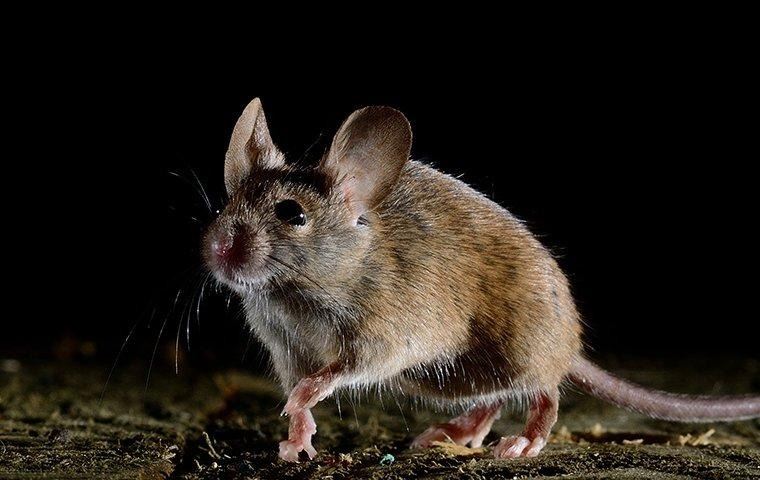
Rodent Control: A Comprehensive Guide For Mooresville Homeowners
Are rodents really that big of a problem in Moorseville? As a homeowner, do you have to be concerned about a cute little mouse or adorable squirrels making camp in your home? After all, what real damage can they do?
In North Carolina, one of the most common rodents to invade your house is the house mouse, a species that shares our homes so often it's been named after that habit. House mice are tiny, cute heroes of a million childhood cartoons, but did you know they're also the second most common cause of house fires? One of the common characteristics all rodents share is teeth that never stop growing. Rat's teeth can grow up to 14 inches a year. All rodents, regardless of type or species, have to grind their teeth down continuously to avoid being unable to close their mouths. They will gnaw on walls, books, and perennial favorite-furniture legs.
House mice, for an unknown reason, have a particular penchant for dining on electrical wiring inside the walls of your home, commonly short-circuiting it. Fires started by sparks from a short-circuited electric line combined with easily flammable insulation in your home's walls contribute to over 20 billion dollars in damage rodents cause in the United States each year.
Add to that the food and surfaces rodents contaminate, the multiple infectious diseases they carry, and the damage they can do to your house, and it's easy to see why rodent infestations are dreaded by Mooresville homeowners. Let's take a quick look at the types and characteristics of rodents common to North Carolina, the dangerous consequences of rodents infesting your home, what you can do to keep rodents out of your house, and what treatments Mooresville pest control professionals utilize to get rid of rodents invading your home.

Characteristics Of Common Rodents
There are over 2000 species of different rodents in the world, making them the largest and most diverse group of mammals on earth. You can encounter rodents anywhere you can find people.
Over the millennia they've been around, rodents have evolved into perfectly adaptable creatures capable of surviving and prospering in almost every climate and environment in the world. Rodents multiply incredibly fast, with a single house mouse capable of producing litters of up to 14 pups every 25 days, putting up to 140 new gnawing, breeding, and food-contaminating mice within your walls in just a year.
They are masters of infiltration, capable of squeezing through a hole less than a nickel in size, climbing up vertical walls, or balancing across a phone wire to sneak into your attic. And if that fails, rats have been known to simply chew their way through house walls.
Out in nature, rodents subside on a variety of foods like leaves, grains, nuts, and certain insects. Their stomach system contains a special pouch called caecum, which rodents use to ferment cellulose, allowing them to extract the nutrients they need. Rodents, being omnivores, are also not above eating carrion or other meats if available.
Thankfully, most rodent species have no interest in humans or their homes and do their best to stay out of our way. In North Carolina, rodents attempting to move in into your home will most likely belong to the following species:
- Norway rats are the largest rat species in North America, growing up to 9 1/2 inches long, not counting the tail (which often is at least half as long as the rat itself). Their bodies are long and muscular, with blunt muzzles and small eyes and ears. Norway rats are most often brown with a few black hairs and have grey or white undersides. Outside your house walls, Norway rats are most often found in the burrows dug under logs or rocks, and they will use that burrowing skills to try and infest lower levels of your home.
- Roof rats are a bit smaller, most often between 6 and 8 inches long, with long skinny bodies and large eyes and ears. Their fur is usually brown with white or grey undersides and scaly tails. Roof rats are social animals, so if you see a single rat, there is a very good chance there are more close by. As their name suggests, they are amazing climbers. Roof rats are likely to be found in the upper parts of the building, attics, and close to the roof line after climbing up the walls or balancing across lines of wiring to get inside.
- House mice are by far the most common rodents to infest our homes. Measuring 2 1/2 to 3 3/4 inches long with a round body and large eyes and ears, house mice are very adept at staying out of sight. Most often, they are grey in color with creamy white undersides. House mice live in large colonies, breed rapidly, and can dislocate the bone plates of their scull to fit through openings barely over 1/4 inch in size.
- Deer mice are larger than house mice, growing out to 8 inches long, including the tail, with brown fur and white feet and undersides. They are colored reminiscent of a common deer and can be easily identified by their bi-color tail. Deer mice are much more reluctant to live in close vicinity of humans than house mice and are more common in rural areas. They will, however, infest outside buildings or even homes if the weather is bone-chilling enough.
- Tree squirrels are usually between 6 and 15 inches long with a big bushy tail, grey or brown fur, and white undersides. Squirrels are excellent climbers and are likely to be found in the attics of your home. They have a well-known habit of burying nuts (and forgetting where exactly they're buried) to consume later, which is very beneficial in helping reforest areas they habituate.
- Voles are underground rodents and are usually between 5 and 7 inches long with short, stocky bodies and small eyes and ears. Vole's bodies are perfectly suited to living in underground tunnels, usually with multiple entrances and exits. Voles feed on grass and young plants and can become a serious problem in your garden or backyard if their numbers grow.
Most common rodents in North Carolina are nocturnal and experts at staying out of sight, making it very difficult to spot an infestation until their numbers grow and they start to venture out farther from their nests in search of food.
Rodents Can Make You Sick And Damage Property
Rodents in your home come with a litany of problems. Voles aside, every rodent species in North Carolina will use your house and the things inside it as chew toys in a daily pursuit to keep their teeth manageable in length.
Squirrels and mice find electrical wiring particularly alluring and are a constant concern for starting house fires. Voles can make your backyard look like a war zone and destroy younger plants. All rodents have an incredibly capable sense of smell and will joyfully raid whatever food you have in the house, destroying and contaminating everything they don't get a chance to eat.
But the biggest worry that comes with a rodent infestation in your Mooresville home is the diseases they carry. From ratbite fever, cowpox fever, and jaundice to leptospirosis, tularemia, and lymphatic choriomeningitis, rodents in your house are a risk to your health and the health of your loved ones. Add to that a number of diseases you're exposed to thanks to fleas and ticks that hitchhike into your home on rodent fur, and it becomes very clear that sharing your home with a rodent infestation is a pretty bad idea.
Five Eco-Friendly Rodent Exclusion Tips For Around The House
The best way to handle a rodent infestation in Mooresville is to prevent them from getting inside your home in the first place so let's take a look at what you can do to make your home unappealing to rodents:
- Seal any cracks or crevices in the outside walls bigger than 1/4 of an inch in diameter.
- Keep human and pet food stored in well-sealed glass or metal containers.
- Store trash in rat-proof trash cans and dispose of it regularly.
- Cut down grass and shrubs around the house.
- Make sure to check for signs of rodent infestation in rarely used parts of the building, outbuildings, and stored cars.
Rodent infestations can sometimes be very hard to spot until they are in advanced stages, making a regular pest control inspection by an experienced Mooresville rodent control professional a great idea.
The Most Effective Rodent Control Method For Mooresville Homes
At Lake Norman Home Services, we've been helping Moorseville homeowners get rid of rodents and other pests infesting their homes for over 30 years.
Our technicians will inspect your home and property, determine where the rodents made their way into your home and seal their passageways. After that's taken care of and there is no need to worry about additional rodents coming in, we'll design and execute a treatment program to rid your home of rodents and keep them from coming back.
If you're struggling with a rodent infestation, give us a call to learn more about our residential and commercial pest control services in Mooresville and we'll be happy to help!


Customer Reviews
-
“Lake Norman pest control does a wonderful job all around and even explained the safety concerns I had of the products for my new baby and dog.”- Lauren G.
-
“Lake Norman Pest Control has always been consistent with their service quality and more than fair with pricing.”- Michael C.
-
“He called me after the appointment and gave me a summary of the service and he made some additional recommendations.”- Leslie Z.
-
Jake promptly arrived and asked what issues we were having and quickly began applying treatment. He was professional and thorough. Very pleased with the service today.- Lisa C.
-
“Jake promptly arrived and asked what issues we were having and quickly began applying treatment.”- Lisa C.
-
“Lake Norman always does a great job in communicating and shows up at their committed times.”- Mike C.
-
“Michael has beHe and every representative we’ve worked with from this company have been very kind and good at listening to our needs. en super helpful! He's prompt, thorough, and responsive to all of our questions.”- Kimberly G.
-
“Our technician, Jake, has been very helpful. He has been on time and responsive to all my questions.”- Laurence P.


Why Choose Lake Norman Home Services?
-
Give A CrapDelight others by owning your role and saying yes. Take pride in how you appear & act & every other detail of the job. Be on time, attentive, & enthusiastic. Act as if the buck stops with you on every aspect of the job.
-
Chase PerfectionChase Perfection, knowing full well we will not reach it, but along the way we will catch excellence. Have a sense of urgency; Go-Forth Time - right now might be the only time you have to get it right.
-
Dig Deeper
Be an action-oriented professional that makes decisions based on evidence rather than stories & assumptions. Stay curious. Data can speak for itself.
Understand the cause of the fire rather than rushing to extinguish it.
-
Fight For SimplicityKeep it simple & consistent. Focus on how things should be done every time.
-
Face It, Fix ItConfront challenges directly and address issues head-on. A bias for action and powerful conversations drive our progress. It’s about getting it right rather than being right.
-
Grow!Growth is our purpose. Growing as people & growing our business.